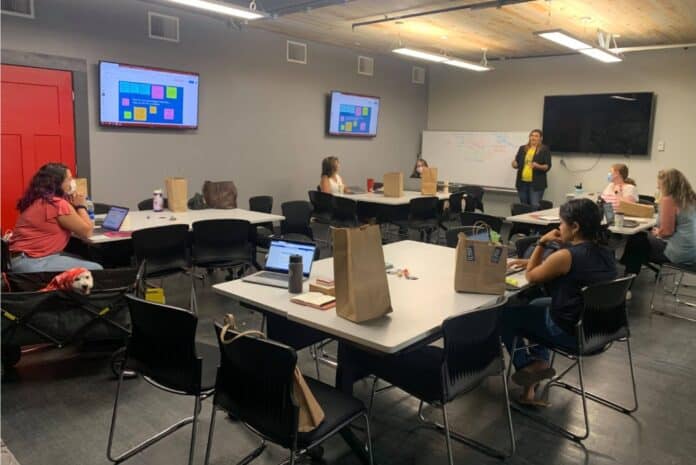The district has 200 languages spoken across the district.
The Denver school district is among the first in the country to adopt a “language justice” policy as a “long term goal.”
The district would encourage non-English speaking students to be able to use their native language to learn as opposed to being educated in English, which advocates say is oppressive and rooted in racism.
Denver schools had about 90,250 students in 2022 with 35,000 multilingual learners with home languages other than English. The district has 200 languages spoken across the district, with Spanish as the home language for the majority of those.
The district included a draft of an equity document that includes a policy statement on “language justice.” It was included in the Nov. 16 school board agenda. The document includes this definition for “language justice”: “The notion of respecting every individual’s fundamental language rights – to be able to communicate, understand, and be understood in the language in which they prefer and feel most articulate and powerful.”
The district didn’t respond to an email seeking comment. It’s not clear how much such a policy would cost and the district didn’t provide details in the school board agenda packet of how to implement it.
The Colorado chapter of the education advocacy organization Stand For Children stated it worked with the Denver school district to get the language justice policy adopted.
“We will continue to work with school leaders and staff to help provide knowledge of these policies and strategies to accomplish language justice in every classroom and school,” Colorado Stand For Children posted on its website.
The Community Language Cooperative, which has advocated for language justice, referred to a chart that explained what is involved in the program.
“The organization has allocated significant funds to language justice efforts. This is a yearly budget line item,” the chart states.
It also states that meetings or public events “are facilitated in the represented languages. … Interpretation is made available to all participants, not just the non-English speakers.”
The organization would also hire bilingual staff members, put them in leadership positions and pay them “equitably” to “ensure that bilingualism is a valued skill for the organization.”
“It’s not just a matter of hiring more interpreters and translators but rather creating systems and building the infrastructure that best supports linguistically diverse families and supporting multilingual staff,” Rosa Guzman-Snyder, co-founder of Community Language Cooperative, said in an email to The Center Square.
The Community Language Cooperative, which provides translation services, explained in a post on The Colorado Trust’s website how language justice could be implemented.
“Here’s how it works: When somebody speaks in English, [interpreter Luis] Gomez simultaneously whispers the Spanish interpretation into his mic, which feeds the headsets of everyone in the room. There’s another person whispering the English interpretation when somebody speaks Spanish,” the post read.
Tom Gantert
Go to Source
Reposted with permission



















![WATCH: Elon Musk Town Hall Rally in Green Bay [FULL Video]](https://www.wisconsinrightnow.com/wp-content/uploads/2022/04/Elon_Musk_3018710552-356x220.jpg)



![The Wisconsin DOJ’s ‘Unlawful’ Lawman [WRN Voices] josh kaul](https://www.wisconsinrightnow.com/wp-content/uploads/2025/03/MixCollage-29-Mar-2025-08-48-PM-2468-356x220.jpg)










